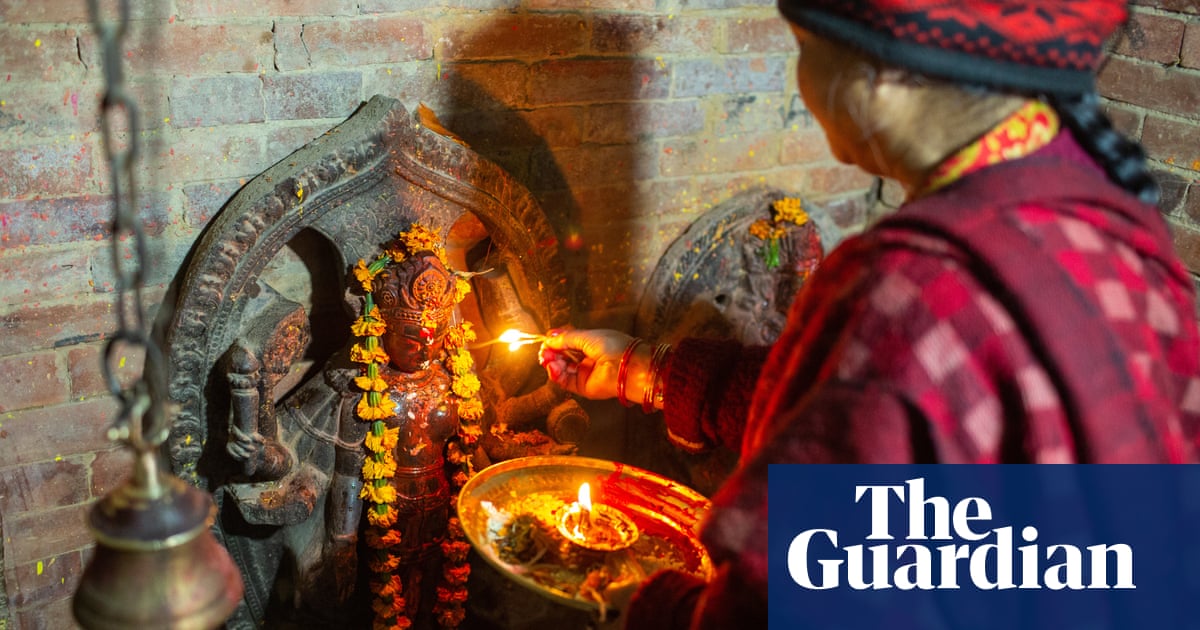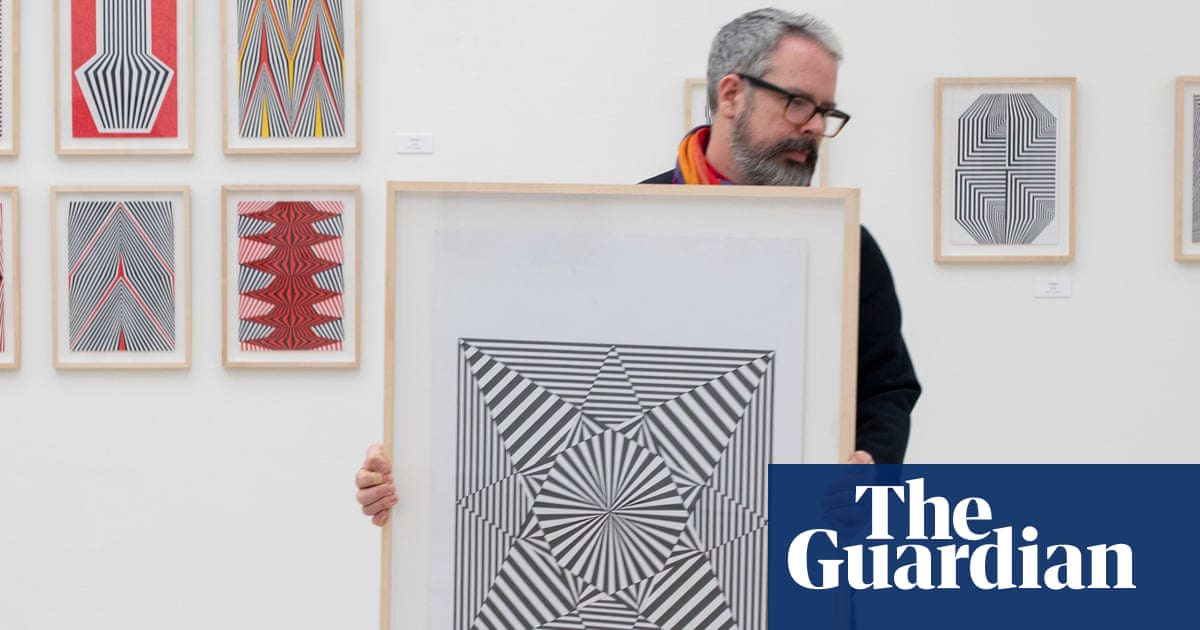
hen I first spoke to Azu Nwagbogu, the recent protests against police brutality in his native Nigeria had just entered their second week. The curator was upbeat, describing them as “an incredible awakening”. A week later, when we made contact again, he sounded more sombre, but no less defiant, following the fatal police shootings of at least 12 protesters at the Lekki toll gate in Lagos, the main gathering point for the daily demonstrations.
“This protest is not about ‘the poor masses’,” he tells me. “My sister, who is a medical doctor and a consultant anaesthetist, was active in the protests. Everyone who isn’t in government has had enough. The genie has been let out of the bottle and it won’t go back in without the wishes of the people being fulfilled.”
As we spoke, the African Artists’ Foundation (AAF), a non-profit organisation he founded in 2007, had a team attending the protests daily, supporting photographers on the ground “by providing a truck with first-aid kits, refreshments, charging ports and a generator so they can recharge their drones and get refreshed”.
Nwagbogu could be described as an outlier in his role as a curator of, and spokesperson for, African art and photography. A familiar face on the international arts festival circuit, his vision and seemingly inexhaustible energy underpin both the AAF and LagosPhoto festival, of which he is director. Among his myriad other projects is a recently opened group show of contemporary African painting, The Medium Is the Message, at Unit London. Its aim, he says, is to challenge the lingering cliches that attend black creative self-representation. “It is not about ideas of black excellence or black misery,” he tells me, “but what I call a middle sensibility that makes the mundane special.”
Last weekend saw the launch of the 11th edition of LagosPhoto, which takes the form of a digitally led programme of exhibitions, workshops and talks alongside site-specific installations in public spaces throughout the city. Since its inception, the festival has been curated around often ambitious themes such as Staging Reality, Documenting Fiction (2014) and Regimes of Truth (2017). Its aim is to exhibit work of emerging African artists including Joana Choumali, Omar Victor Diop and Lagos-based Stephen Tayo, all of whom have shown there, alongside visiting photographers including Viviane Sassen, Martin Parr, Cristina de Middel and Lorenzo Vitturi.
“For a long time, no one from outside got to see the work of local photographers and they, in turn, had no interaction with international photographers,” Nwagbogu elaborates. “So the aim from the start was twofold: to engender a dialogue that disrupted the sense of isolation that many African artists felt, and to challenge Afro-pessimism, the prevailing notion of Africa as a place of suffering and an object of pity.”
For visiting artists like De Middel, who guest curated the festival in 2015, Nwagbogu’s role has been nothing short of transformative. “For me, Azu is a visionary for the potential of African photographers on the global scene,” she says. “He is a bridge that connects African photography with the rest of the world, but also helps those of us who want to make work about Africa understand the layers and the richness of a culture that has often tended to be historically simplified by western photographers.”
On a practical level, though, how challenging was it to curate and make work in Lagos? “Working there is definitely different,” she admits. “Plans change constantly, venues cancel, prints arrive late, but somehow it all comes together. It can be quite an extreme experience by western standards, but you learn some very valuable lessons in how to adapt.”
This year, Nwagbogu has faced the added challenge of the pandemic and, at the 11th hour, the widespread anti-government protests. The festival’s opening date was pushed back two weeks and many of the planned talks have been adapted to reflect the ongoing situation. This last-minute shift of focus, he says, will bring “a citizen’s approach to this year’s edition”, the theme of which is Rapid Response Restitution – a call for a meaningful discussion about the return of important colonial-era African artefacts from western museum collections.
“When I think of what has happened in terms of our artistic heritage,” he elaborates, “the analogy of the phantom limb phenomenon comes to mind – you have lost a limb, but you feel it is still there. Well, we have lost our heritage and we know we have lost it, but we can somehow still continue even though we are walking on crutches. I am saying, it’s time to drop the crutches and feel the pain and the loss. Let us at least acknowledge what has been lost.”
To this end, the central project in this year’s festival is the Home Museum, a digital exhibition designed by a young German-based, multicultural research cooperative Birds of Knowledge, to “shine our eyes on our homes as if they were museums”. Participating photographers were selected via an open call and many of the images present often humble objects imbued with meaning through generations of family history.
“We launched the project in nine languages, including three major Nigerian ones,” he explains. “The aim was to find objects and images that somehow told a resonant story about Africa.” Intriguingly, 60% of the 300 entries submitted were from non-Africans, whose link to the continent was more complex in terms of the colonial past. “Many were from people with some kind of connection to the continent through the objects they own or have inherited,” says Nwagbogu. “One Greek man, for instance, sent images of sequestered pieces belonging to his grandfather who had worked building railroads in Africa.”
As well as cooperating with many small local museums across Nigeria, including the Fela Kuti museum in Lagos, Nwagbogu and his creative collaborator Clémentine Delisse have encouraged people to photograph their living spaces. “We want to show how many people have created an African cosmology in their own homes,” he elaborates. “Until there is actual remediation, it is important not only to address the subject of what has been lost – the African artworks sequestered in museums in the west – but also to look at what we have in our homes and our local museums.”
Our conversation inevitably turns to another topical subject, the lack of diversity and representation in the international art world, which remains predominantly white and privileged despite all the lip service paid to the Black Lives Matter protests. “I would call it virtue-mongering rather than signalling,” says Nwagbogu, scathingly. “I felt that a lot of it was done not with conviction or conscience, but to jump on board the cause, drowning out everyone else with posturing.”
As a black curator, does he feel optimistic that, despite his reservations, there may be real change in the air? “I hope so, because I feel the imbalance personally when I go to international festivals and fairs. It is no fun going to somewhere like the Arles photo festival and being the only black curator. My feeling is that we must regenerate ourselves otherwise you play into this post-colonial mentality, in which black curators are constantly insecure and competing against each other as if there is only room for one superstar curator. I call it postcolonial cannibalism – this sense that you are made to feel so exceptional that you don’t want to let other people in. There is no real future in that. The only way forward is to bring people in with you.”












